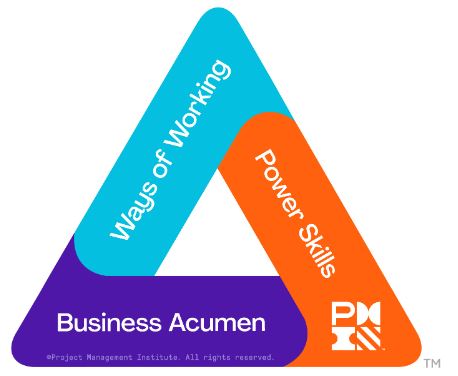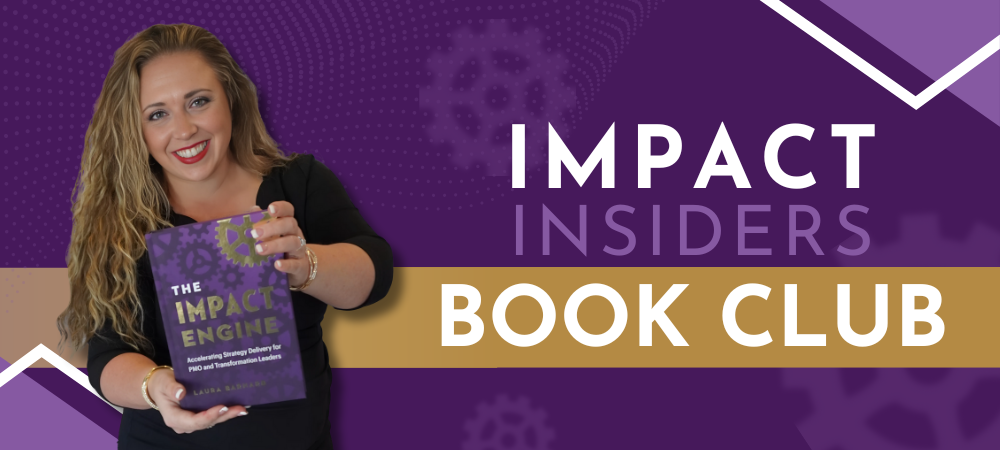Welcome to the PMO Strategies Podcast + Blog, where PMO leaders become IMPACT Drivers!

PMI Talent Triangle: Power Skills
Before I understood friction, I assumed the people were the problem.
When updates went quiet, deadlines slipped, or handoffs got messy, I told myself it was a commitment issue. Maybe they didn’t care. Maybe they weren’t on board. Maybe they weren’t ready.
So I tried to fix it with pressure. More meetings. More urgency. More follow-ups. But nothing changed. The results didn’t improve. Engagement didn’t increase. Execution didn’t speed up.
Eventually, I looked at the system instead of the people. And what I found was friction.
There were too many approvals. Roles weren’t clearly defined. Intake required way more information than anyone could reasonably give at the start. The steps weren’t intuitive, and the process lacked flow.
What I thought was resistance was actually the result of how hard we had made it to participate.
It’s Not Laziness. It’s the System.
Most people want to do good work. They want to contribute. They want to be valuable. But when the process around them is slow, confusing, or overly complex, their motivation gets buried under friction.
They aren’t resisting the change itself. They’re resisting the pain of trying to work inside a system that feels broken.
When the steps are unclear, the approvals take forever, or the “why” behind the work is missing, you will lose momentum. Not because people don’t care. Because your process made it too hard to follow through.
What Resistance Actually Looks Like
Resistance isn’t always loud. It doesn’t show up as active pushback or open disagreement. More often, it’s quiet.
You get a yes in the meeting, but no one moves afterward…
The intake form gets sent around, but no one completes it….
Leaders commit in public, but behind the scenes, no one is really driving.
People stop asking questions, and silence replaces engagement.
It’s easy to mistake that silence for alignment. But it’s actually a signal. Something in your system is making it harder to act than to stall.
Pressure Doesn’t Remove Friction. Design Does.
When things slow down, pressure feels like the natural move. Remind people. Chase updates. Ask for accountability. But the truth is, you can’t pressure your way through poor system design.
If you’re constantly following up, that’s a signal your process is not creating flow. And if your team is disengaging, it may not be about effort or mindset. It may be that the process itself is in their way.
You’re not removing accountability by simplifying the process. You’re directing it. You’re making it possible for people to move, not harder for them to try.
Good Enough Beats Perfect When You’re Building Momentum
I worked with a PMO that had a 42-question intake form. It was meant to create structure. But what it really did was drive people away. No one wanted to engage. They avoided the process altogether.
We cut that form down to three questions.
- What are you doing?
- Why are you doing it?
- What does success look like?
That one change shifted everything. Instead of avoiding the process, stakeholders leaned in. The team went from having no customers to having a full pipeline of projects.
It wasn’t about tools or templates. It was about reducing friction. And once we did, people stopped resisting.
Want Performance? Design for Flow.
This episode is a call to stop blaming people for system issues.
If your project is stuck, if your teams aren’t engaging, if follow-through is inconsistent, the root cause might not be who’s doing the work. It might be how the work is being done.
Resistance is often just a symptom of friction. And the moment you start removing that friction through clarity, simplicity, and better design, performance gets easier. Momentum returns. Results start to show up.
👉 Click play above to learn how reducing friction leads to real performance and consistent follow-through.
P.S. This is your last week to grab a personalized, signed copy of my bestselling book, The IMPACT Engine — and you’ll get the e-book version FREE so you can start reading instantly, plus a bunch of extra FREE goodies. Only 50 copies are available, and they’re going fast! Grab it here.
P.P.S. If you’ve already bought any version of The IMPACT Engine book previously, don’t forget to sign up for our Book Club. The IMPACT Insiders Book Club is so much more than reading a book — it’s a movement. Join us for live calls, deep conversations, and a behind-the-scenes look at how to create real change with The IMPACT Engine. It’s completely free — grab your seat now and don’t miss what’s next.
T hanks for taking the time to check out the podcast!
hanks for taking the time to check out the podcast!
I welcome your feedback and insights!
I’d love to know what you think and if you love it, please leave a rating and review in your favorite podcast player. Please leave a comment below to share your thoughts. See you online!
Warmly,
Laura Barnard









